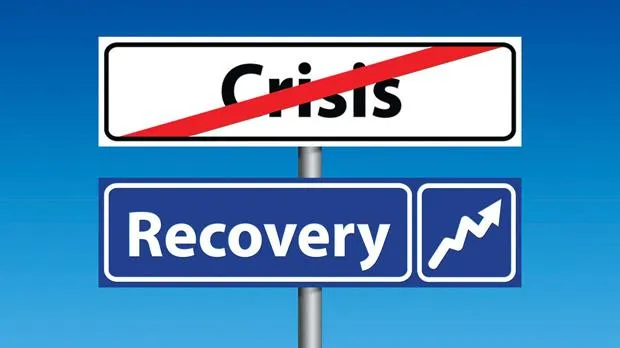Alcoholism is a challenging condition that impacts not only the individual but also their families and communities. The journey toward recovery is complex and requires a thoughtful approach that addresses the many layers of addiction — physical dependence, emotional struggles, and psychological challenges. We will explore how Pacific Ridge’s comprehensive approach supports individuals at every step, combining medical care, therapy, and ongoing support to help people reclaim their lives. Moving from crisis to recovery is not a simple or quick process; it demands resilience, guidance, and a treatment model that respects each person’s unique needs. Through a carefully structured program, those affected by alcoholism can find hope, healing, and a path toward lasting change.
A Holistic Model That Addresses the Complexity of Alcoholism
Alcoholism is more than the inability to stop drinking; it is often intertwined with other mental health issues, social challenges, and past trauma. Understanding these complexities is essential for effective treatment. The Pacific Ridge rehab center in Oregon begins its process by conducting a thorough assessment, which helps determine the severity of the addiction as well as any coexisting mental health conditions. Many people struggling with alcoholism also experience depression, anxiety, or post-traumatic stress, and these factors can contribute to both the development of addiction and the difficulty of recovery. A treatment plan that overlooks these issues often falls short, so addressing co-occurring conditions simultaneously is critical.
The first phase of treatment often involves detoxification, where medical staff carefully manage withdrawal symptoms in a safe environment. Detox can be a physically and emotionally taxing process, but proper supervision ensures that individuals move through it with as much comfort and safety as possible. Once detox is complete, the program shifts focus to therapeutic work that targets the root causes of addiction and fosters new coping skills. Therapy at Pacific Ridge involves individual counseling where clients explore personal triggers, behavioral patterns, and emotional pain that may have contributed to their drinking. This work allows individuals to develop insight and strategies to face cravings and stress without relying on alcohol.
Group therapy is also a central component of the treatment process. Sharing experiences with others who understand similar struggles helps break down feelings of isolation and shame. In group settings, participants gain encouragement, learn from others’ stories, and build a sense of accountability. These connections often become a crucial support system that extends beyond the treatment center, offering encouragement during vulnerable moments. The social aspect of recovery is frequently overlooked but plays a vital role in sustaining long-term sobriety.
Beyond therapy, Pacific Ridge emphasizes the importance of life skills training. Many people with alcoholism struggle with managing daily stress, communicating effectively, or maintaining healthy relationships. These challenges can create a cycle that reinforces drinking behavior. Through workshops and practical sessions, clients learn how to handle conflict, set boundaries, and develop routines that support their well-being. This aspect of treatment helps equip individuals with the tools needed to live independently and confidently once they leave the program.
Family involvement is another important element of the recovery process. Addiction often damages relationships, leaving both the individual and their loved ones hurt and confused. Pacific Ridge encourages family participation in counseling sessions, whenever appropriate, to foster understanding and rebuild trust. Family therapy creates a space where everyone affected can express their feelings and learn how to support one another in recovery. Repairing these connections is healing for the family unit and strengthens the client’s support network during and after treatment.
An essential part of moving from crisis to recovery is planning for life after formal treatment. Many people struggle to maintain sobriety once they return to their everyday environment without structured support. To address this, Pacific Ridge develops personalized aftercare plans that may include outpatient counseling, peer support groups, and access to resources that help clients continue building healthy habits. Preparing for challenges such as stress, social pressure, or relapse triggers is key to sustaining progress. This ongoing support system can differentiate between temporary abstinence and long-term recovery.
The environment itself plays a role in healing. Pacific Ridge provides a calm and supportive setting to reduce anxiety and promote positive thinking. The physical space encourages mindfulness and self-care, which contribute to overall wellness. Nutrition and physical activity are also integrated into the program, acknowledging that recovery involves restoring body and mind health. Healthy eating and exercise routines help clients feel stronger and more energized, which supports emotional stability and resilience.
In recent years, technology has become a helpful addition to treatment options. Pacific Ridge sometimes incorporates digital tools and apps that allow clients to track progress, practice therapeutic exercises, or connect with counselors between sessions. This flexibility supports continuous engagement, especially for those facing barriers to in-person meetings. Using technology in recovery programs reflects an understanding modern lifestyles and the need for accessible, ongoing care.
Recovery from alcoholism is a process that involves more than stopping drinking; it requires rebuilding many aspects of life that addiction has affected. Pacific Ridge’s model highlights the importance of a comprehensive approach that combines medical care, therapy, family involvement, and aftercare planning. Individuals receive the guidance and tools necessary for long-term change through a supportive and healing environment. Moving from crisis to recovery is not an easy path. Still, with a well-rounded treatment plan and ongoing support, it is possible to regain control and create a fulfilling life beyond addiction. This approach underscores the hope and potential that exist for anyone ready to take that first step toward recovery.


